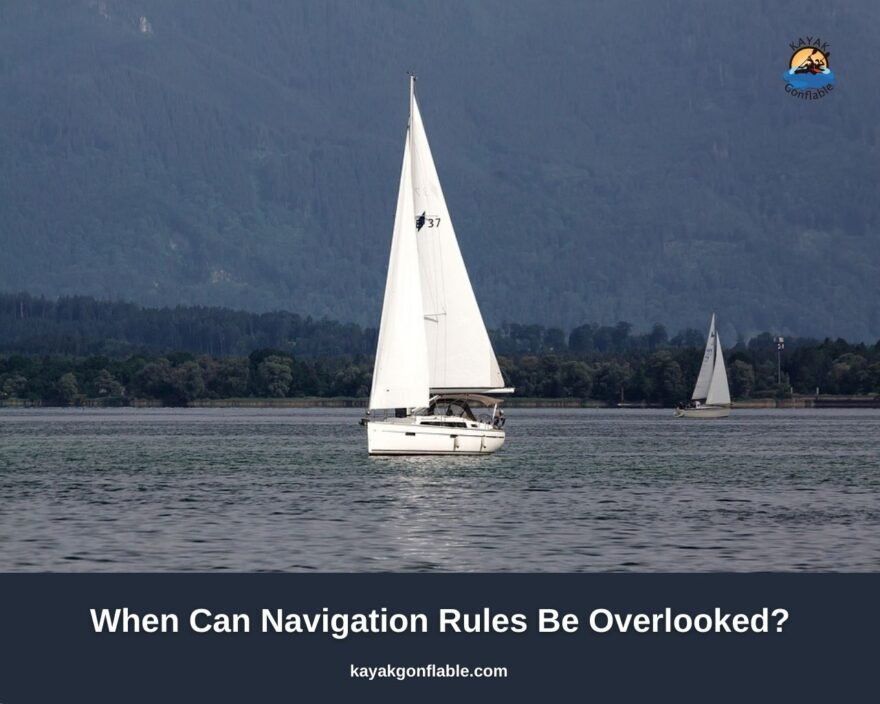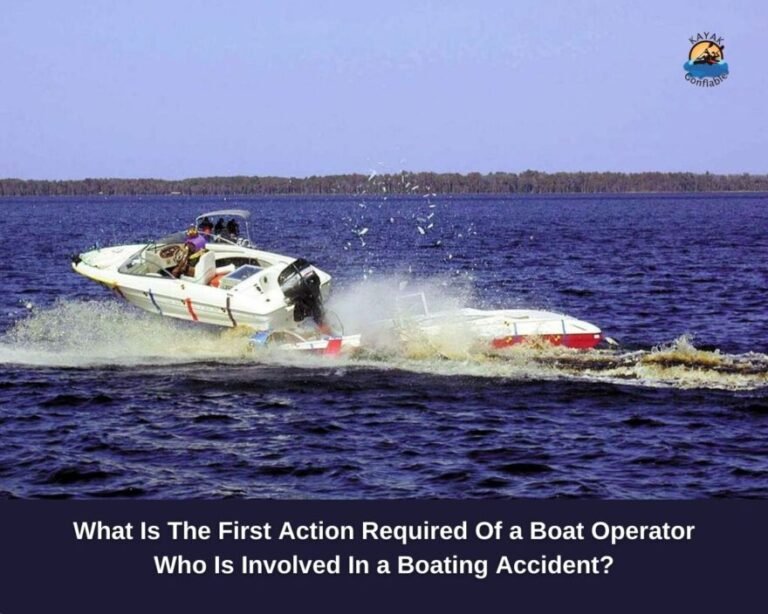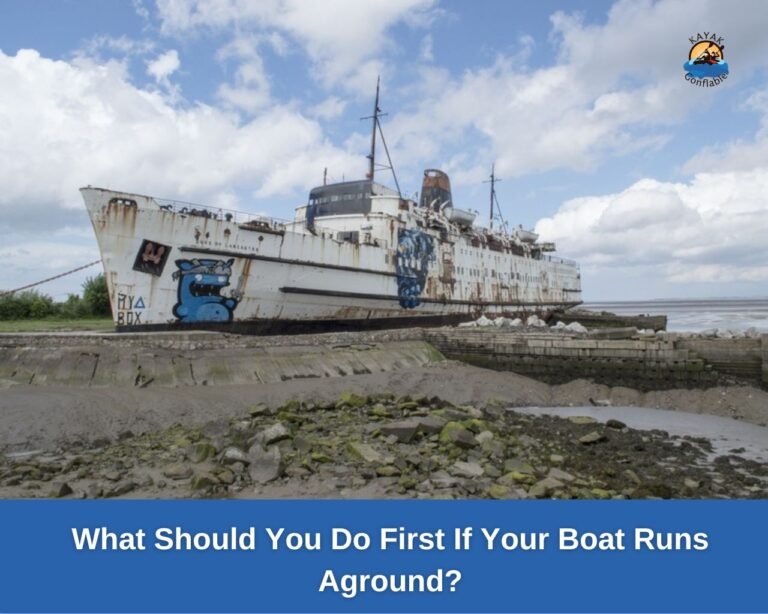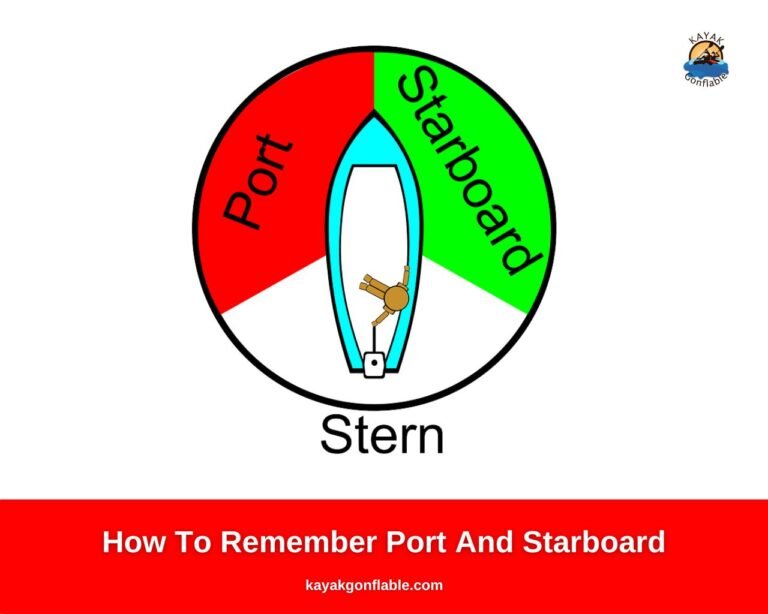When Can Navigation Rules Be Overlooked?

Navigation rules include who has the right of way, instructions given via regulatory markers and other safety devices, speed limits, and so much more. They are the traffic rules guiding water travel and must be obeyed.
Failing to adhere to them often attracts serious punishments, but there are exceptions, as with all regulations; vessels are sometimes allowed to depart from these golden rules. We shall explore such times in this article.
What Are Navigation Rules?
Navigation rules are guidelines that sailors follow to safely sail their vessels. These include knowing the stars, your latitude, and longitude, keeping a lookout for hazards such as rocks, shoals, and reefs, and charting a course using landmarks and compass directions.
Navigation can be a challenge in open water, but with a little practice, sailors can successfully navigate their way to their desired destination.
When Can Navigation Rules Be Overlooked?
Navigation rules ensure safe travel on the water. They maintain order making sure all watercraft know where to be, with which speed to move, and what to do in case of emergencies.
These safety rules can, however, be thrown out the window without repercussion in some instances. Such scenarios are:
- To avoid immediate danger
Sea travel is an inherently dangerous activity. Oftentimes, accidents can happen quickly and without much warning. Navigators are trained to pay attention to the currents and winds to avoid dangerous situations but they sometimes happen.
Water travelers are allowed to ignore navigation rules to escape imminent danger. The rules exist to keep sailors safe so they can be bent to keep sailors safe.
In the case of an emergency, a captain has the power to make decisions that go against normal navigation procedures. Avoiding danger is the most legitimate reason to overlook navigation rules.
- Crossing dangerous waters
Crossing dangerous waters can also lead to a disregard for navigation rules. In turbulent waters, people are on edge and navigational rules are hardly their first thought.
Sailors in such conditions will do anything to return safely including bending some navigation rules. A good example of this is that a ship may feel more at ease moving close to other vessels in dangerous waters.
- When a vessel has little maneuverability
When a vessel has little maneuverability, the captain and crew may be tempted to disregard navigation rules to remain safe.
However, this can result in dangerous conditions for everyone on board. When navigating these conditions, it is important to use all of the available information to make safe decisions.
If you are sailing in a vessel with more maneuverability towards one with less agility, some navigation rules can be overlooked as the inability of the other vessel to actively avoid a collision must be taken into account. In such cases, the other watercraft will generally be the stand-on vessel.
- Sailing in poor visibility
Sailing in poor visibility can be a time when navigation rules are overlooked. For example, the use of radar can be complicated or even impossible in low visibility.
The sailor’s inability to see clearly may cause him to throw caution to the wind and wing it. Keep in mind that doing so could result in hazardous situations so be cautious.
When sailing in poor visibility, sailors should always use sound and light signals as well as keep an eye on the horizon to stay safe. Sailors should also avoid making sudden changes in course or speed and remain alert for other vessels and obstacles in the water.
- When the sailor is inexperienced
Navigation is an essential skill for any sailor but can be particularly challenging when weather conditions are poor and the captain is unfamiliar with the area.
Inexperienced sailors may disregard navigation rules to save time, potentially resulting in a dangerous situation. Sailors must be well-versed in both the written and unwritten navigation rules to safely navigate their vessels.
It is important to always remember that by following a few simple guidelines, even an inexperienced sailor can make safe and efficient travel so always adhere to navigation rules unless the situation calls for a deviation from them.
Ignorance of The Rules
The majority of marine accidents occur as a result of human error. To avoid these accidents, mariners need to be familiar with the maritime rules of the road. It is not uncommon for vessels to violate navigation rules without knowing them.
Inexperienced sailors may overlook certain safety regulations, simply because they are not aware of them. This can lead to dangerous situations and can even result in a vessel being stranded at sea.
A sailor on a small boat for instance may not be familiar with the rules governing safe navigation around shallow waters and consequently commit potentially fatal blunders. Lack of knowledge about something ultimately leads to abuse and only knowledge can solve this problem.
There is no ignorance before the law and if you are caught breaking navigation rules, not knowing them won’t spare you from the penalties. To help prevent these accidents, mariners should attend maritime school and become familiar with the rules of the road.
What Are The Consequences Of Overlooking Navigation Rules?
When navigating at sea, it is important to follow all the navigation rules available. These rules are designed to help avoid accidents and protect both the crew and the environment.
However, sometimes these rules are overlooked, leading to dangerous consequences. Here are five such consequences:
- Navigation errors can lead to shipwrecks.
- They can also cause a captain or crew member to be lost at sea.
- They can create hazardous conditions for those on board the vessel leading to serious injuries and even death.
- They can endanger the environment.
- You could end up in legal trouble for disregarding navigation rules especially if your actions put others on the water at risk.
Navigation errors are one of the most common causes of accidents at sea. If a ship is not properly equipped, then it may be difficult to maneuver safely in hazardous waters. Navigators must be constantly vigilant to stay safe on the open water.
Who May Depart From Navigation Rules?
Navigation rules are designed to keep everyone safe while at sea. However, certain people may depart from these rules in special circumstances to stay safe. Those who can ignore navigational rules are listed below.
- Those in imminent danger
The current maritime law enforcement environment requires that all persons in imminent danger depart from navigation rules at sea. This includes those who are experiencing a life-threatening emergency, as well as those who are in a dangerous situation.
Permission to ignore navigation rules is a deviation from the traditional approach of adhering to the letter of maritime law.
The policy rationale for this departure is twofold: first, when people are in imminent danger, their safety comes first; and second, by departing from the letter of maritime law, those in imminent danger can more easily communicate with those who are seeking to harm them. This provision exists to ensure that all sailors are safe.
- Pirates and illegal fishermen
Though illegal, these factions depart from navigation rules. They do this because they know that law enforcement agencies will not be able to catch them, and they believe that they can get away with it. It’s important to note however that if caught, they will face the wrath of the law.
- Those experiencing a mental health crisis.
When individuals are experiencing a mental health crisis, they may depart from normal navigation rules at sea. For example, a person who is experiencing a psychotic episode may not be able to follow the simple directions of a navigator.
Additionally, individuals who are in an intense emotional state or who are under the influence of drugs or alcohol may not be able to make sound decisions.
In these situations, it is critical for a navigator to be available and prepared to assist a person who may not be able to make sound decisions.
- Research Vessels
The research vessels that depart from navigation rules at sea are primarily those conducting marine science research. Marine scientists depend on these vessels to collect data on the oceans and their inhabitants.
These vessels often rely on unconventional means of navigation, such as using the ocean’s currents to travel to different areas. Many of these vessels operate outside of traditional maritime regulations, which has raised concern among some lawmakers.
Some legislators argue that these vessels should adhere strictly to maritime rules to protect the public and ensure safety. Navigation rules can be overlooked for many a reason at sea.
They may be overlooked because of stubbornness, danger, inexperience, ignorance, etc. Each situation has repercussions as an unlawful departure from the rules can result in drastic consequences.
Navigation rules can be overlooked legally when a vessel is in danger. The captain has the responsibility to protect his ship and crew and will take any measures necessary to do so.
While following the navigation rules is important, there are times when they can be disregarded to ensure the safety of the ship. Remember, a safe voyage begins with following the rules; so, knowing when to adhere to and ignore them is a crucial part of sailing.






